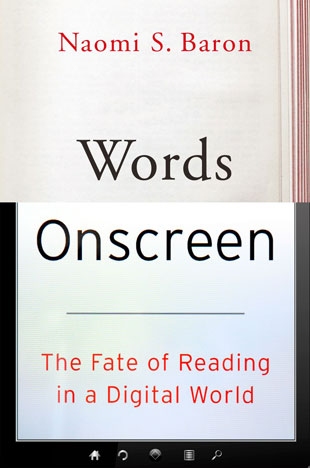"In less than a decade, the book trade, along with personal reading habits, has transformed dramatically. eBooks are now a multibillion-dollar business for Amazon, while Borders has shuttered its doors and the fate of Barnes & Noble remains uncertain. By 2012, more books were purchased online in the United States than from brick-and-mortar stores. A growing number of those were eBooks. Students continue selling textbooks back to campus stores at the end of the term, but they now exercise new options, including buying or renting electronic versions.
"Publishers of reference books are acknowledging the shift. The Oxford English Dictionary announced in summer 2010 it would not be publishing its next edition in print. Encyclopedia Britannica followed suit in March 2012. Macmillan ceased publishing physical dictionaries as of 2013.
"Even entire libraries are backing away from print. In 2005, the University of Texas at Austin caused a stir by removing nearly all books from its undergraduate library. Then San Antonio caught the no-book fever. UT San Antonio's Applied Engineering and Technology Library houses more than 400,000 volumes — but all virtual. Bexar County, Texas, which includes the city of San Antonio, next joined the digital club. BiblioTech, a book-free library, opened in late 2013, with its collection housed entirely on computers, tablets, and eReaders.
"Why the shift?
"The earliest ripples of change began with increased reading on computer screens in the 1980s and early 1990s. The waves strengthened with the proliferation of email, instant messaging, electronic versions of newspapers and magazines, and efficient online search tools by the end of the 1990s. Once eBooks began really selling (following the arrival of Amazon's Kindle), a growing number of people turned to consuming book-length text onscreen. With the coming of the iPad in 2010, a tidal wave ensued. The paradigm was changing, and reading in hardcopy was depicted as old-school. The explosion of online academic courses (usually complete with online readings) has become a sign of the times. And one more sign: In June 2014, a US ambassador took the oath of office on an eReader for the first time.
"There has been a lot of talk about the future of printed books: scholarly works (like Geoffrey Nunberg's The Future of the Book), organizations (such as Bob Stein's Institute for the Future of the Book), and conferences (including a 2012 meeting at MIT, "Unbound: Speculations on the Future of the Book"). But an even deeper issue is whether new digital technologies will upend our understanding of what it means to read in the first place. If so, will we be better off, worse off, or about the same when it comes to learning or enjoyment?
"The answers are hardly obvious. And they will probably keep shifting as technology evolves and as our experience (and comfort level) in using digital devices for reading increases."
